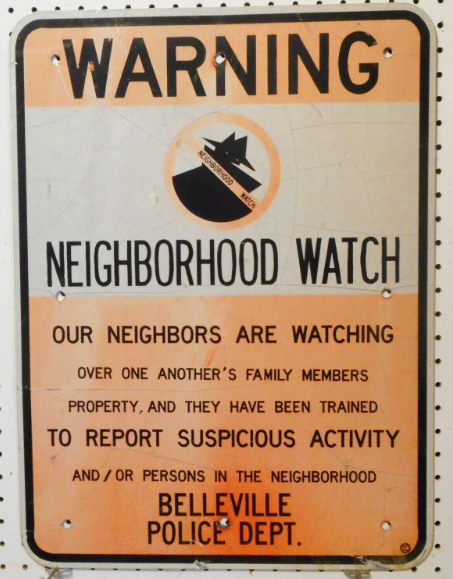DPRK, along with Iraq and Iran, was declared part of the "Axis of Evil" in 2002 by the US's George W. Bush administration. This 2008 book recounts and analyzes the "war on terror" and the U.S. bid for unipolar hegemony up to the time of its writing. It provides details about that time period, as well as other historical background information, delivered with DPRK's anti-imperialist perspective. Overall, I think it's an interesting and relatively quick read (81 pages) covering mainly the 1990s-mid 2000s and tracing the emergence of multipolarity and the US's attempt to stop that emergence around the world, with attention given specifically to its attempts to gain control over countries in which oil and natural gas pipelines run through in order to circumvent Russia and "seize the lifeline of the European economy."
Beginning with the fall of the Soviet Union and thus the ending of NATO's reason for existence, it follows the US's unpopular attempts during the 1990's to manufacture a new world enemy, until the 9/11 attack created its perfect excuse to permanently wage war on any region unfavorable to US interests, with the main conclusion of the book being that although this project by the US is intended to drag on indefinitely, it will eventually end in failure due to its unilateralism and infringement upon sovereignty of nation-states, "illogicality combined with a childish attempt at division of the international political forces, and anachronism."
Below I will share some excerpts from the book.
several excerpts
[With the collapse of the Soviet Union] NATO forfeited its raison d’etre, and the United States was deprived of any justification for its pursuit of world supremacy. The stick which the US had been wielding on the excuse of “protecting the free world” from the “threat” of the Soviet Union and communism, lost its authority, and the focal point that had supported the pyramid of the US-led alliance diminished considerably. The Iron Curtain was lifted, widely opening the sphere of influence under the former Soviet Union, a much coveted region. The United States, however, lacked a specific justification to fill the “power vacuum” until September 11, 2001.
In order to reverse the world trend towards multipolarization and allay the spiraling anti-Americanism across the world, the United States needed an event by which it could mislead opinion at home and abroad as in the days of the Cold War and bring about a radical change in the world political sphere.
The objective of the war [in Afghanistan] was not the capture of bin Laden or retaliation for terrorist attacks, but to exert a long-term influence on Afghanistan to secure a foothold in Central Asia, a region with abundant strategic resources: First, to secure a strategic foothold for containing Russia and China and encircling Iran; second, to secure military means for winning firm control over the two major oil regions in the world-the Caspian Sea area and the Middle East; and third, to secure a centre of operations and advanced base needed for expanding and prolonging the “war against terrorism.”
The ulterior motives [of the Iraq war] were, first, to overthrow the Saddam regime, which had openly held up the anti-US banner in the Arab world for over ten years, thus realigning the political force in the Middle East in its favour, second, to win exclusive control over the strategic region with energy resources and the world oil market, and third, to create an environment favourable for Bush’s second term of office and the Republicans’ prolonged stay in power.
Military blockades, a link in the whole chain of the “war against terrorism,” are effected through the Proliferation Security Initiative, which Bush proposed in Krakow, Poland, in late May 2003 and explained in detail at the G-8 summit held in Evian-les-Baines, France. It aims at enforcing economic blockades on the countries that possess, develop and export weapons of mass destruction and searches of their vessels at sea, and further building an international cooperation system for preemptive strike. The targets are Korea and Iran, two of the three countries Bush claimed to be constituting an “Axis of Evil.”
The countries and regions where the flames of the “war against terrorism” are raging are, without exception, those that have oil resources or where oil pipelines pass through. The Afghan war was directly related to oil and its transport in the Caspian, the third-biggest oil region in the world. Samuel R. Berger, national security adviser to former President Bill Clinton, confessed that America’s vital interests in Central Asia, including Afghanistan, are to safely transport oil and natural gas at any cost.
The existing pipelines in Central Asia, from which the United States imports oil, pass through Russia. So the United States had to find another transport channel for Caspian oil to avoid Russia’s monopoly of the pipelines. The southward channel passing through Iran was ideal, but America’s relations with the country were a stumbling block.
Iraq has oil deposits of 112 billion barrels, the next-biggest oilfield after that of Saudi Arabia, and the cost of drilling one barrel was 50 cents before the war, the cheapest in the world. If the United States brought this oil country under its control, it would prove favourable for it to relieve its burden of oil imports, which was estimated to spiral 90 percent till 2020. Moreover, this would deal a telling blow to OPEC, restrict the influence of Russia and other oil suppliers, and seize the lifeline of the European economy.
Entering 2002, the United States took the lead in inducing early membership for Romania and Bulgaria, countries that have ports on the Black Sea, of NATO, and intensified its military advance into Georgia and other Transcaucasian countries. These actions promoted a plan for laying an oil pipeline from the Caspian Sea through Turkey, by-passing Russia.
Availing themselves of the “war against terrorism,” the US military-industry complexes, which had been eclipsed after the Gulf War, bounced back. US munitions enterprises, including the four major corporations-Lockheed Martin, Boeing, Raytheon and TRW-are enjoying a wartime boom.
After 9/11 the United States did its best to involve as many countries as possible in its own “war against terrorism.” [...] On September 18, 2001, Secretary of Commerce Don Evans warned that such sanctions as blocking access to the American market and reconsidering food assistance would be imposed against those countries that were unwilling to cooperate with the United States in the campaign. This led many countries to donate troops and help with logistics in the “war against terrorism,” and to allow US-led forces to pass over their territorial airspace or use bases in their territories during the wars in Afghanistan and Iraq, or promise cooperation or express understanding-overt or covert cooperation with the United States.
Bush divided the world into those on the US side and those on the “terrorist” side, through childish logic. Labelling the countries that pursue anti-US independence, that are not obedient to it and that are situated in regions of strategic importance as siding with the “enemy,” he resorted to unprecedented pressure and military blackmail. If the United States could find a “reasonable excuse,” it immediately and unhesitatingly committed military aggression.
The Taliban regime in Afghanistan and the Saddam Hussein government of Iraq became miserable victims of the “war against terrorism.” The next targets of the “war,” which is continuing in line with Bush’s “ripples” strategy, are the DPRK, Iran and Cuba. These countries, though small, stick to the principle of independence, and reject the American view on values. [...] The US attempt to crush the DPRK and realize domination over the whole Korean peninsula constitutes the core of its policy towards the DPRK and the key to its building of a foundation on which to achieve world hegemony.
The Songun politics the DPRK now pursues acts as a deterrent to the “war against terrorism” and safeguards peace in Northeast Asia as well as on the Korean peninsula.
To cope with a possible military strike by the United States, Cuba put all its people under arms and fortified the whole country. In December 2004, four million civilians joined the soldiers and reserve forces in the last stage of Bastion 2004, a military exercise aimed at perfecting the principles of “all-people war” against possible US aggression. Cuba’s firm anti-US stand and strong countermeasures will inevitably foil any US attempt to stifle it.
If the United States continues the “war against terrorism” with the logic that any country that is not on its side is on the enemy’s side, it will inevitably meet self-destruction.
Bush submitted the Nuclear Posture Review to Congress in January 2002. Outlining the orientation of the nuclear policy the United States should pursue in the forthcoming five to ten years in the report. Bush insisted on changing the strategy of nuclear deterrence. In the part not made public, the report pinpointed the DPRK, along with China, Russia, Iraq, Iran, Libya and Syria, as targets of nuclear attack, and further expanded the scope and methods of the use of nuclear weapons. [...] The document also advocated nuclear preemptive strike against nonnuclear states by defining five nonnuclear states as targets of nuclear attack.
In the United States some advocate a theory of “cultural conflict,” which alleges that Islamic culture is fundamentally contradictory to Christian culture. Neocons view that 9/11 proved this conflict and the only way to eliminate it is to reform the entire Islamic world and lead it to Western-style democracy.
Since 9/11 the United States has claimed that, as the “failed states,” serving as a source of or shelter for terrorism, pose a great threat to global security, the countries that sponsor international terrorism or allow the free activities of terrorists in their territories should also be viewed as “failed states.” Alleging that these countries are deprived of their raison d’etre, it insists that the international community, or some countries, or one country, has a right to take action with regard to such countries, and further to change their regimes to root out terrorism, which threatens the international community. The concept of “bankrupt states” (“rogue states” and “Axis of Evil” included) much touted by the Bush administration serves, in practice, US military intervention in other countries.
The “war against terrorism” pursued by the Bush administration will eventually end in failure due to its unilateralism that infringes upon the sovereignty of nation-states, illogicality combined with a childish attempt at division of the international political forces, and anachronism.



Man I hate this dude
-- Antony J. Blinken, "Lebanon and the Facts", 1982
-- Antony J. Blinken, "Israel's Saving Grace", 1982
-- Antony J. Blinken, "The Danger Within", 1983